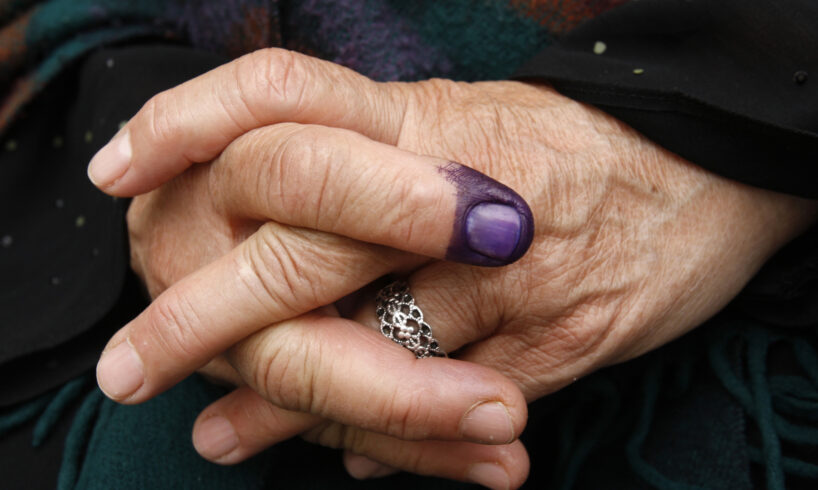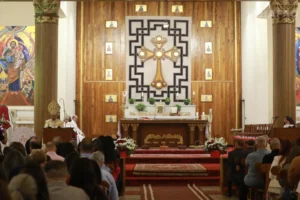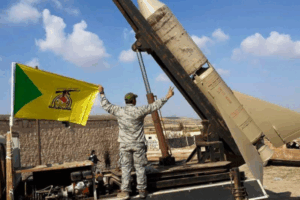
2025-11-08T19:12:34+00:00
font
Enable Reading Mode
A-
A
A+
Shafaq News
Iraq will hold its parliamentary elections on Tuesday, November 11,
2025, with special voting on Sunday, November 9, for security forces, displaced
persons, and detainees. The Independent High Electoral Commission (IHEC)
reports more than 21.4 million registered voters, including 1.34 million
eligible for special voting, across 18 provinces. Preparations include over
8,000 polling centers and thousands of press and monitoring facilities.
Read more: Iraq’s 2025 Parliamentary Elections — What You Need to Know
Read more: Inside Iraq’s Special Vote: Forces, camps, and credibility ahead of the ballot
Electoral Law and Voting System
The elections will take place under the 2023 amended electoral law,
which restored the Sainte-Laguë proportional representation formula using a 1.7
divisor. Iraq’s 83 electoral districts correspond to its provinces, with 329
parliamentary seats to be distributed. The system strengthens established
political blocs and reduces the advantage independents gained in 2021. A recent
Federal Supreme Court ruling also unified the Kurdistan Region’s constituencies
under federal oversight.
Read more: Iraq’s 2025 Elections: Revised law reshapes the path to power
Shiite Blocs and Al-Sadr Boycott
Within the Shiite political arena, the Coordination Framework
dominates the race, led by figures such as Nouri al-Maliki, Hadi al-Amiri, and
Ammar al-Hakim. These alliances are contesting key southern and central
constituencies. The Patriotic Shiite Movement, headed by Muqtada al-Sadr,
continues to boycott the elections, a stance that reshapes voter mobilization
patterns in Baghdad, Najaf, and Maysan.
Read more: Iraq’s Shiite factions: a landscape of division
Read more: CF on the brink: Disputes divide Iraqi bloc
Read more: Iraq’s political enigma: The unpredictable maneuvers of Muqtada al-Sadr
Read more: Iraq’s 2025 Elections: Shiite giants clash for Soul of the House
Sunni Alliances and Regional Competition
The Sunni political landscape is marked by five major alliances:
Taqaddum (Progress), Al-Azm (Determination), Al-Siyada (Sovereignty), Nineveh
for Its People (Ninawa Li Ahliha), and National Resolve Alliance (Al-Hasm
Al-Watani). A new Unified Sunni Leadership Coalition (Ittihad Al-Qiyada
Al-Sunniya Al-Muwahhada) aims to coordinate parliamentary strategies after the
vote. Their competition centers on provinces such as al-Anbar, Saladin, and
Nineveh.
Read more: Iraq’s 2025 elections: Five major Sunni alliances ignite the race
Kurdish Parties and Regional Dynamics
In the Kurdistan Region, the Kurdistan Democratic Party (KDP) and
Patriotic Union of Kurdistan (PUK) remain the dominant actors, while New
Generation (Al-Jeel Al-Jadeed-NGM), Kurdistan Islamic Union, and Kurdistan
Justice Group are seeking to expand their reach.
Read more: The Kurdish spine of Iraq’s elections: Unity tested by division
Women’s Quota
Iraq’s election law reserves 25 percent of parliamentary seats for
women, ensuring at least 83 female representatives across all provinces.
Read more: Iraqi women join the race, yet real power remains out of reach
Minority Representation
An additional nine seats are designated for minority communities,
including Christians, Yazidis, Sabean-Mandaeans, Shabaks, and Feyli Kurds.
Read more: Iraq’s 2025 Elections: Minority quota under spotlight
Election Monitoring and Transparency
For the first time since 2003, Iraq is heading to the polls with
the weakest international and regional monitoring presence — and without the
hallmark European missions that once lent credibility and balance to the
process.
Read more: Iraq’s elections under a shrinking lens: international oversight fades away
Concerns Over Fraud, Bribery, and Ballot Security
Despite new safeguards, concerns remain over vote-buying, card
manipulation, and ballot fraud. Watchdog organizations have reported early
signs of cash incentives and fuel vouchers offered to voters in rural
districts, though authorities have not confirmed specific cases. IHEC says it
has tightened distribution protocols for biometric cards, limited replacement
issuance, and reinforced security around ballot storage centers.
Read more: The biometric bribe: Card trafficking undermines Iraqi democracy
Read more: Iraq’s voter turnout: From post-war enthusiasm to political fatigue
Youth Participation and Public Sentiment
With nearly 60 percent of Iraq’s population under 30, youth
participation is seen as a decisive factor in voter turnout. Civil society
groups and student networks are promoting awareness campaigns on social media,
encouraging young Iraqis to cast their ballots.
Read more: Iraq’s Gen Z faces choice: Vote or boycott in 2025 elections





